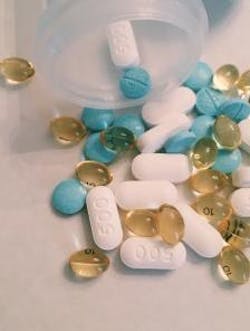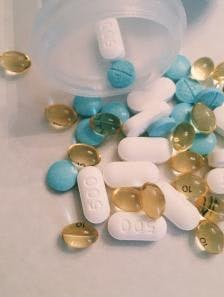Top 5 Drugs With the Biggest Growth Potential in 2019
Although personalized medicines are on the rise, the era of blockbuster drugs is far from over. In the coming year, several drugs that treat a range of diseases will far surpass the $1 billion blockbuster mark and continue to grow.
In December, Evaluate Pharma released its pharma industry projections for 2019, including the top five drugs that will see the biggest growth in year-over-year sales:
It’s no surprise that Keytruda tops this list. Since Merck’s crown-jewel immunotherapy drug was approved in 2014, its sales have skyrocketed from $50 million that year to $8.7 billion in 2018. Throughout 2018, the immuno-therapy drug, which works by activating the body’s T-cells and its immune system to fight cancer, continued to show positive trial results for a range of new indications, including tough-to-treat diseases such as prostate cancer. Currently, Keytruda is being evaluated for more than 30 types of cancers.
The drug also won new indications in 2018 for several types of cancer including advanced Merkel cell carcinoma, a rare skin cancer.
Despite growing competition in the market for immuno-therapies, Keytruda’s expanding list of indications has helped fuel its growth. In 2019, Keytruda will rake in an estimated $2.22 billion more than last year.
Biktarvy — Gilead Sciences
Although it was just approved in February 2018, Gilead’s single-dose pill that combines three HIV treatments has already become one of the company’s biggest drivers of growth. In just its first seven months of sales, the drug generated $606 million.
In 2019, Biktarvy sales are expected to grow by $1.83 billion. Some analysts have predicted that the drug will rake in $6 billion each year by 2024.
Ocrevus — Roche
Last year, Roche’s CEO called the 2017 launch of Ocrevus, a treatment for multiple sclerosis, the most successful in the company’s history.
Ocrevus offers a novel approach to treating both relapsing remitting and primary progressive forms of MS by targeting an immune cell called CD-20 positive B cells. Just over a year after it was approved in the U.S., the drug reached blockbuster status and its sales are expected to grow by $1.21 billion in 2019.
Revlimid — Celgene
In the coming weeks, Celgene will find out how long its dosing patents for Revlimid, its flagship $8-billion-a-year multiple myeloma drug, will hold up. But there’s a chance the drug could face generics competition as soon as 2021. Because the drug garners such a huge portion of Celgene’s sales, falling off the patent cliff is expected to be a major blow for the company.
Despite these pressures, Bristol-Myers Squibb announced this month that it is scooping up Celgene for $74 billion, causing analysts to wonder if the deal will be enough to offset the future loss of Relvimid sales.
For now, however, Revlimid is still up on the upswing and is expected to generate an extra $1.2 billion in sales in 2019.
Eliquis — Bristol-Myers Squibb/Pfizer
Although it was first approved in 2012, Eliquis has remained one of the top selling drugs for BMS (which co-developed Eliquis with Pfizer).
Sales for Eliquis, an anticoagulant that is primarily used to treat deep vein thrombosis and atrial fibrillation, are expected to start declining in 2022 when the drug will face generics competition.
But BMS and Pfizer have been looking at expanded uses for the drug in the atrial fibrillation space (such as preventing strokes). After pulling in more than $4.7 billion in sales in 2018, Eliquis is expected to generate an additional $1.14 billion this year.

